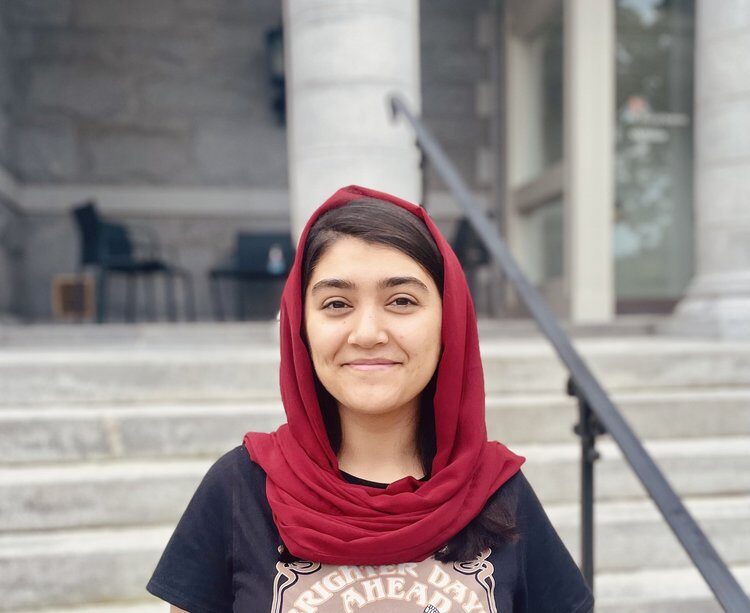“Afghan girls – they are not the victims. They are the heroes. They are the ones who are fighting.”
– Aydin Sahba Yaqouby
#PlugInTheWorld felt privileged to have an enlightening conversation with young Afghan girls’ education activist Aydin Sahba Yaqouby, who represented all Afghan girls at the UN General Assembly. We were joined by many like-minded young activists across the globe on a virtual platform.
The conversation struck upon the girls of Afghanistan who are currently faced with a future of uncertainty and unfulfilled desires of studying and pursuing their dreams. There, girls are jailed in their own home, with increasingly severe restrictions on their mobility. They have to be accompanied by a male family member at all times and wear a burqa or hijab regardless of choice. It is an incredibly trying time for the citizens of Afghanistan, as peace has receded to a wishful fantasy. Afghans are leaving the land where their heart belongs, just for survival.
_“What’s happening with girls in Afghanistan isn’t a political issue. It’s a humanitarian issue.”_
The conversation proceeded to the UNGA panel on education equity, where youth and activists around the world came to talk about education and its importance. Since Afghanistan is one of the most significant countries where girls are deprived of education, it was expected to be a highlight, but shockingly it was barely mentioned until Aydin took the stage. Various global leaders, including external affairs ministers and policy makers, were unaware of the situation in the conflict-ridden nation. This insensitive behaviour left the attendees, and Afghan girls back home who are driven by the hope that the world cares about them- with shattered hearts.
Further, the talk highlighted that no matter from where one comes and to where one belongs, it is the responsibility of everybody, to raise their voice against suffering. This is especially true for women, the youth, and otherwise marginalised or silenced communities. Aydin stressed upon the importance of solidarity and support without victimising those who need the international community to stand by them.
_“Forcing women to wear the hijab in Iran, to take off their hijab in India or not giving them abortion rights in the US- it is all the same issue. It is all about making decisions for them. It is all about oppressing them in different ways.”_
The debate on the hijab raging across the world was brought up in the discussion. This issue shows that the primitive habit of controlling and oppressing women still exists either way; whether girls are forced to wear the hijab or remove it. It shows that women are still not allowed to make their own decisions.
The conversation concluded with ideas to control the inhuman acts happening worldwide. If leaders, young activists and countries unite together to warn and pressurise the wrongdoers, then there is hope to bring positive revolution into the world.
